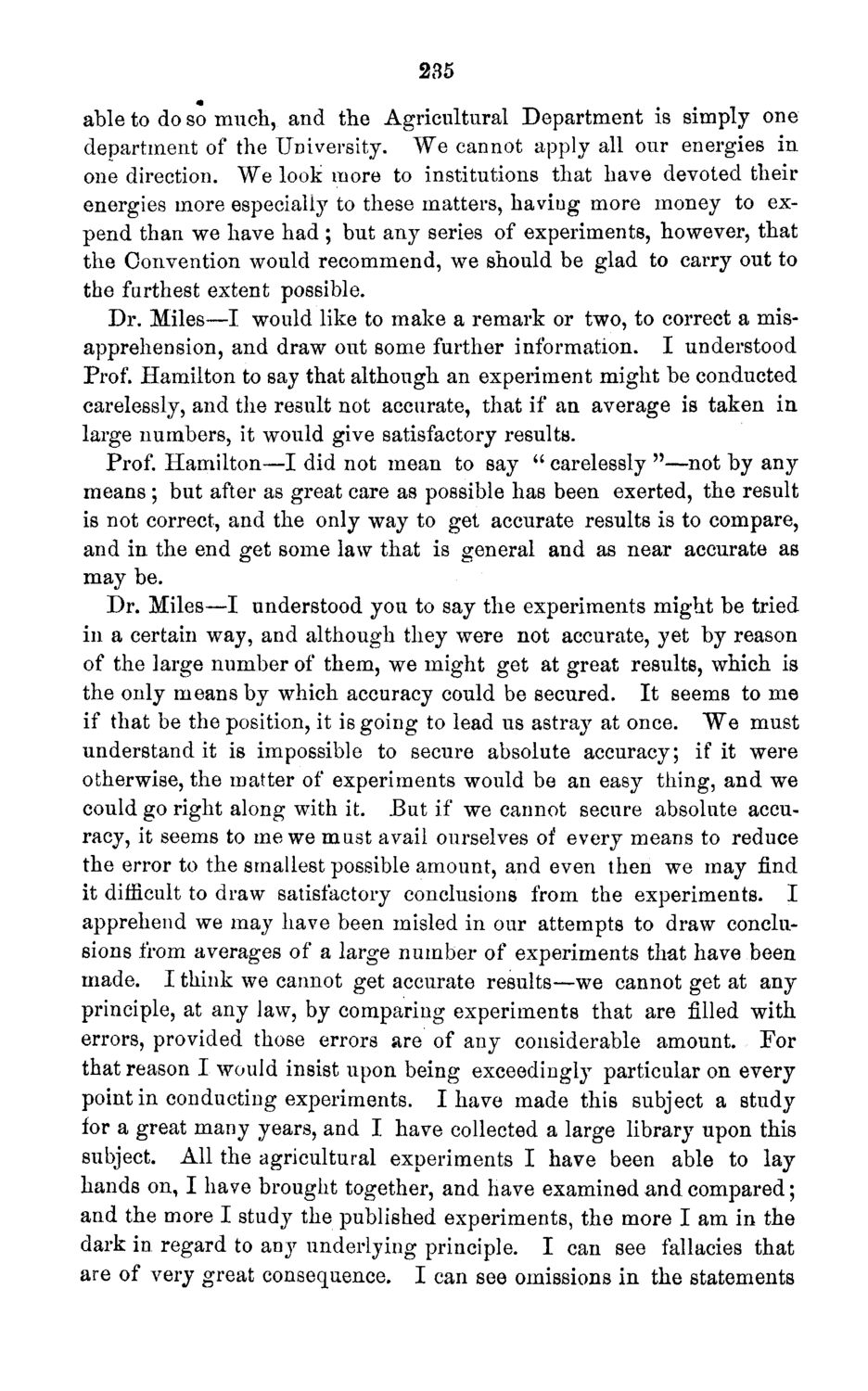| |
| |
Caption: Board of Trustees Minutes - 1871
This is a reduced-resolution page image for fast online browsing.

EXTRACTED TEXT FROM PAGE:
235 able to do so much, and the Agricultural Department is simply one department of the University. We cannot apply all our energies in one direction. We look more to institutions that have devoted their energies more especially to these matters, haviug more money to expend than we have had ; but any series of experiments, however, that the Convention would recommend, we should be glad to carry out to the furthest extent possible. Dr. Miles—I would like to make a remark or two, to correct a misapprehension, and draw out some further information. I understood Prof. Hamilton to say that although an experiment might be conducted carelessly, and the result not accurate, that if an average is taken in large numbers, it would give satisfactory results. Prof. Hamilton—I did not mean to say " carelessly "—not by any means ; but after as great care as possible has been exerted, the result is not correct, and the only way to get accurate results is to compare, and in the end get some law that is general and as near accurate as may be. Dr. Miles—I understood you to say the experiments might be tried in a certain way, and although they were not accurate, yet by reason of the large number of them, we might get at great results, which is the only means by which accuracy could be secured. It seems to me if that be the position, it is going to lead us astray at once. W e must understand it is impossible to secure absolute accuracy; if it were otherwise, the matter of experiments would be an easy thing, and we could go right along with it. But if we cannot secure absolute accuracy, it seems to me we must avail ourselves of every means to reduce the error to the smallest possible amount, and even then we may find it difficult to draw satisfactory conclusions from the experiments. I apprehend we may have been misled in our attempts to draw conclusions from averages of a large number of experiments that have been made. I think we cannot get accurate results—we cannot get at any principle, at any law, by comparing experiments that are filled with errors, provided those errors are of any considerable amount. For that reason I would insist upon being exceedingly particular on every point in conducting experiments. I have made this subject a study for a great many years, and I have collected a large library upon this subject. All the agricultural experiments I have been able to lay hands on, I have brought together, and have examined and compared; and the more I study the published experiments, the more I am in the dark in regard to any underlying principle. I can see fallacies that are of very great consequence. I can see omissions in the statements
| |